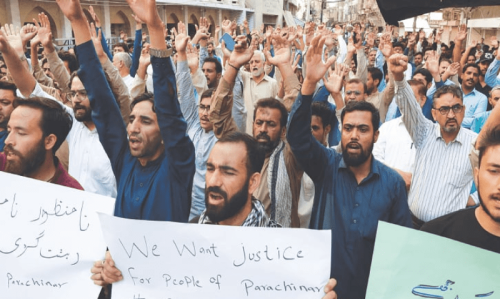ISLAMABAD, May 28: Prime Minister Syed Yousuf Raza Gilani has rejected a proposal put forward by the World Bank and IMF to withdraw subsidy from petroleum products in the new budget and said that the nation cannot withstand the ‘shock’ at this stage.
Informed sources quoted the prime minister as saying at a high-level meeting on budgetary matters that the subsidy could be withdrawn gradually and only after the government succeeded in mobilising new resources by overhauling the taxation system.
“New resources are required to provide some respite to the poor and lower-middle income groups,” he said.
IMF Director for South Asia and Middle East Mohsin Khan and World Bank Vice-President for South Asia Praful C. Patal have proposed to the government to “immediately do away with all subsidies” on oil, wheat and fertiliser to improve the economic health of the country.
According to the sources, the prime minister was informed that Indonesia and Sri Lanka had recently removed such subsidies and Pakistan should also swallow the ‘bitter pill’ to achieve the much-needed macro-economic discipline.
The meeting agreed to “prevent further bleeding” and rearranging priorities to achieve economic stability. “The situation is extremely challenging because the budget-making has been facing constraints owing to lack of funds”.
The sources said that a balancing act would be required to generate resources, including from international agencies, and to offer some relief to people.
The meeting decided to cut the size of the Public Sector Development Programme (PSDP) by 10 per cent to Rs400-425 billion for the next fiscal year.
A senior official told Dawn that the meeting had decided to achieve 6.5 per cent GDP growth and bring down fiscal deficit from 9.5 per cent to a sustainable limit of around 5-6 per cent by reforming the taxation system.
He said the IMF had come up with a ‘conservative’ formula for achieving financial discipline by doing away with all subsidies. “We cannot accept the IMF proposal because its role is that of an advisory body, but we have to take into account the advice of the World Bank which is our regular donor.”
He said the World Bank would be convinced that Pakistan could not afford to remove all subsidies at this stage.
According to an official handout, the prime minister said that providing some concrete relief with specific financial allocations to the low-income groups should be on top of the priorities.
He asked the budget-makers to incorporate measures to provide relief to the lowest income groups and boost agriculture and manufacturing growth. He also asked them to work for overcoming energy and water shortages, developing human resources and avoiding wastage of taxpayers’ money.
Prime Minister Gilani said the government would make a sizable allocation for direct income support to the poor and vulnerable groups.
He said the government would soon undertake rural employment generating projects to create jobs for at least 100 days per family, particularly in poor and backward districts. He said that skill development programmes for rural and urban areas would also be initiated.
He said the budget should offer fiscal and development support for manufacturing with tax incentives, support for technology transfer and encouragement for import of small power-generating units.
The prime minister also stressed the need for incorporating measures to encourage construction of small dams, provide incentives for private investment in the power sector and increase allocation for water conservation and management.
The meeting was informed that over 300,000 temporary jobs would be created in the forthcoming PSDP.
Finance Minister Syed Naveed Qamar, special assistants to prime minister Hina Rabbani Khar and Shehnaz Wazir Ali, Deputy Chairman Planning Commission Salman Farooqi, secretaries of the Planning Commission and finance, chief economist and members of the Economic Advisory Council attended the meeting.















































Dear visitor, the comments section is undergoing an overhaul and will return soon.